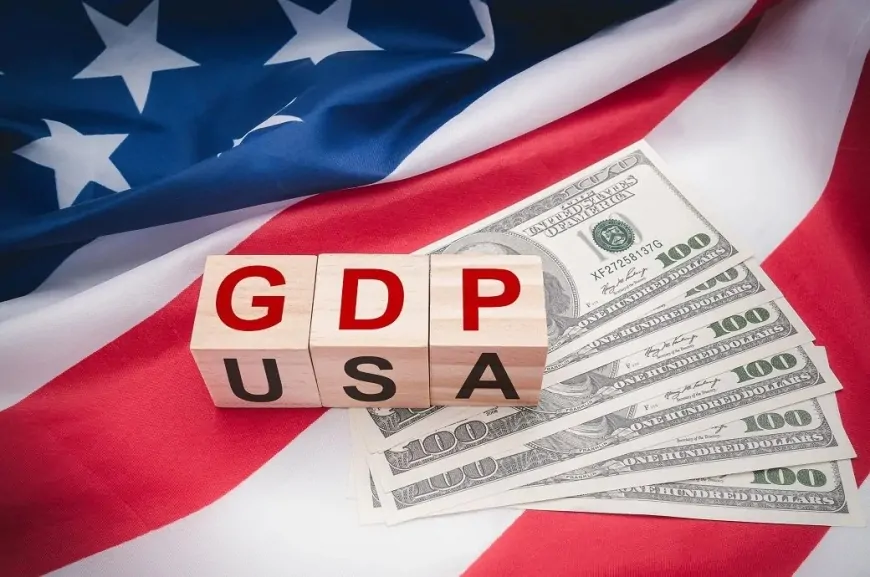Foreign Boycotts Could Slash US GDP by $83 Billion in 2025 – Experts Warn
Foreign boycotts and declining tourism may cost the US economy up to $83 billion in 2025. Trade tensions, tariffs, and consumer backlash threaten growth.

The US economy could face a severe blow in 2025 as foreign boycotts of American products and a decline in international tourism continue to gain momentum. Economic analysts estimate that these developments may cost the US between $28 billion and $83 billion, reducing GDP growth by as much as 0.3%. This comes at a time when the country is already navigating inflationary pressures, supply chain disruptions, and fluctuating interest rates.
US Brands Face Expanding Global Consumer Boycotts
Growing resentment toward US trade policies is fueling consumer-driven boycotts across multiple nations. Canada, one of America’s largest trading partners, has seen a surge in anti-US sentiment, with more than 50% of consumers actively avoiding American-made products, according to surveys. This shift is already affecting major industries, particularly alcohol, as Canadian liquor stores have removed American-made spirits from their shelves. For US distilleries, this loss of a key export market means shrinking revenue streams and a struggle to maintain global competitiveness.
Meanwhile, in Europe and Asia, similar boycotts are emerging. US-based brands linked to the country’s recent tariff policies are seeing declining sales and reputational damage. In China, where tensions over tariffs and technology restrictions have escalated, major American companies face dwindling consumer demand, forcing some firms to reconsider their presence in the region.
According to the US Census Bureau, exports to China dropped by 14% in 2024, highlighting the strain on trade relations. Similarly, European Union imports of American-made goods fell by 8% in the same period as consumers increasingly turn to alternative suppliers.
Trade War Escalation Creates Challenges for Businesses
The Biden administration’s latest trade moves, including a 25% tariff on all foreign-made vehicles, have sent shockwaves through global markets. Countries affected by the tariffs, including Germany, Japan, and South Korea, are considering countermeasures that could severely impact American exports.
Automakers in the US warn that these tariffs will not only increase vehicle prices for consumers but also disrupt supply chains and put factory jobs at risk. If foreign governments impose similar levies on US-made cars and auto parts, the industry could face billions in lost revenue. Industry leaders have already expressed concerns that production cuts and layoffs may be unavoidable if tensions continue to rise.
Beyond automobiles, American manufacturers in the agricultural and technology sectors are also bracing for impact. Farmers, already reeling from previous trade disputes, could see further restrictions on their exports of soybeans, beef, and dairy products. In 2024, agricultural exports to the European Union declined by 10%, with American soybean shipments facing stiff competition from South American suppliers. The National Farmers Union warns that continued trade barriers could cost US farmers an additional $5 billion in lost exports next year.
In the tech sector, companies dependent on global supply chains may struggle to maintain production levels due to retaliatory restrictions from foreign suppliers. The Semiconductor Industry Association reports that Chinese restrictions on US chip imports have led to a 12% drop in semiconductor exports, affecting major companies like Intel and Qualcomm.
Tourism Decline Weakens Revenue
The US tourism industry, which contributes nearly $50 billion annually to the economy, is also showing signs of distress. Recent data from US Customs and Border Protection indicates an 11% drop in international arrivals at the nation’s 12 largest airports compared to last year. Meanwhile, the number of Americans traveling abroad has risen by 5%, suggesting that more tourists are choosing alternative destinations over the United States.
Airline executives are already sounding alarms. Air Canada, which operates the most flights between Canada and the US, reported a 10% decline in bookings for upcoming travel months. Other airlines have noted a similar downturn in demand for flights to US destinations, particularly from European and Asian markets.
Hotel chains and travel agencies are also witnessing a significant slowdown. A major European hospitality group, which owns several luxury properties in the US, revealed that summer bookings from European travelers have plunged by 25%. Analysts attribute this decline to geopolitical tensions, currency fluctuations, and a growing preference for destinations such as Canada, South America, and parts of the Middle East.
A report by the US Travel Association shows that total foreign visitor spending in the US declined by 7% in 2024, translating to an estimated $10 billion in lost revenue. This downturn is expected to continue unless measures are taken to improve the country’s appeal to international travelers.
US Economic Growth Projections Lowered Due to Trade Conflicts
Economic experts are adjusting their US growth forecasts based on the effects of foreign boycotts, trade restrictions, and shifting global perceptions. Goldman Sachs now projects a GDP growth rate of 1.7% for 2025, down from its earlier estimate of 2.4%. Other Wall Street firms, including JPMorgan and Morgan Stanley, have also revised their expectations downward, citing similar concerns.
The Federal Reserve's latest economic report also highlights increasing concerns among businesses, with manufacturing output declining by 3% in early 2024 and consumer confidence dropping to its lowest level since 2020.
With economic uncertainty increasing, business leaders and policymakers face pressure to stabilize market conditions and restore international trust. Addressing the fallout from trade disputes, improving diplomatic relations, and fostering more favorable economic policies will be crucial in mitigating further financial setbacks.
The consequences of these economic disruptions are already being felt across industries, from manufacturing to tourism. If tensions continue to escalate without meaningful intervention, the US may struggle to maintain its competitive edge in the global market. Businesses, policymakers, and trade experts will need to navigate these challenges carefully to prevent long-term damage to economic growth and international relations.
Also Read: Trump's 2nd-Term Tariffs Hit U.S. Economy at a Fragile Moment

































































